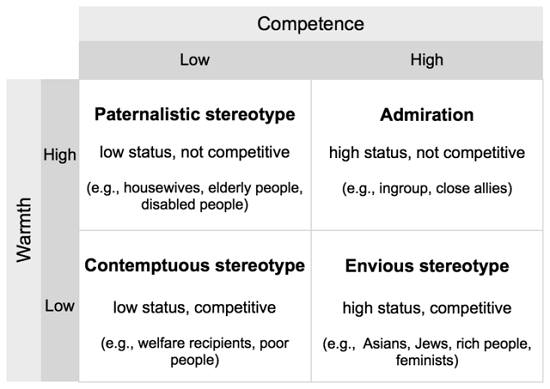
If you accept the expectations of others, especially negative ones, then you never will change the outcome. —Michael Jordan
The other day there was a rather interesting debate on labels and how we human beings began to label everything and everyone around us, just as if they were small packets or groups. Well, it began many millennia ago, with our forefathers in their caves. Whenever they saw a lion or a sabre-toothed cat, their brain would label the animals as “danger”, and the brain would send resources such as blood, oxygen and nutrients to the lower limbs to enable them to escape to safety. Thankfully, their brain did not stop to “analyse the situation”. The brain did not want to look for signs, if the lion was friendly or hungry. It did not evaluate, if they should try and be friendly with the lion. Once the label was given, the action was determined and therefore programmed and, over a period of time, hardwired into our brains. Seeing a lion triggered fear and a thought process of running and, therefore, an outcome of safety. Stereotyping had helped the outcome. Stereotyping was good and continues to be good in many of our life decisions.
Before we go ahead, lets define what is stereotyping.
The word stereotyping comes from the conjunction of two Greek works “stereos” and “typos”. Stereo means solid and firm. Typos means, impression; that is where the word typewriter came from. When you add the two it becomes a solid or firm impression. Something that is cast in stone or written with indelible ink, that cannot be erased.
In the 21st century, we label everyone and everything, assigning values and perceived capabilities to them.
For example, Monday morning is the other end of the spectrum from Friday nights. Nothing changes on a Monday morning as compared to a Tuesday or a Wednesday morning, but our mindset changes. Our early mornings somehow seem to start better as the week progresses and the most cheerful mornings are Friday mornings.
It is not about just negative labels, even positive labels can be confusing and sometimes overwhelming. I write (a lot) about positivity and the moment I post something negative on Facebook, I am asked, “What happened to Mr. Positivity?”
That was classic stereotype at play.
Sometimes I am asked if I am permanently positive? Well, I can put aside my worries of the moment and focus on serving people, which gives me the most satisfaction. But it does not mean I do not undergo the same negativities as anyone else and, as a businessman, I do worry about delivering a good consulting strategy solution, my next revenue stream, debtors who have not sent in their payments and creditors who will be asking me for their payments in another ten days. Sometimes people stereotype me as an HR person who does not anything about real life. Therefore, when I talk about the usual sales and operational challenges, they are surprised that I know what happens in the frontline and the boardrooms.
It is their mindset at play.
Before we get into why the mindset changes, lets understand what mindset is.
Mindsets and stereotypes work in tandem. Dr. Susan Fiske proposed a Stereotype Content model where she proposed that people tend to slot social groups along two axes, Warmth and Competence.

Chart created on the basis of Fiske's "A Model of (Often Mixed) Stereotype Content" Image credit: Wikimedia Commons

Paternalistic stereotypes are those; which are high on warmth but perceived to be low on competence. When you ask a homemaker what she does, you almost universally get the response, "I am just a homemaker." Sometimes when I talk about the social media expertise of my father, who is touching 80, it always evokes surprise in people. You do not expect people above a certain age to be comfortable with technology. The same goes with disabled people. We automatically drop their performance standards. We impart our warmth to them, but we do not expect them to be competent. Our mindsets work towards lowering our expectations from them, and that starts a downward cycle.
Research shows that just putting women in a room full of men lowered their examination scores because mindset and self-doubt came into play. We expect the millennial generation to behave in a certain way and therefore we have come to accept high attrition as fait accompli. I daresay the support for the recent OROP also has these undertones. Instead of pensions, why are we not asking for how can we make sure that the military personnel who come back are better equipped to reach economically flourishing stages. Their economic independence might serve them better than just money.
Contemptuous stereotype takes place when we perceive both the warmth and competence to be low. The recent outrage against reservation has an overtone of this kind of stereotyping. I am not speaking for or against reservations here. I am still questioning my own mindset, while I continue challenge the stereotype. We expect that everyone who comes from the reserved category will not be at the same academic and intellectual level of their non-reserved counterparts.
Imagine you went to a hospital and you were told that the attending doctor had gained entry in the medical college through the reserved quota. You might not want to be treated by the doctor, even though he may have graduated in the top quartile.
If you are told that the person who has applied to be a school bus driver is a recovering alcoholic, (alcoholics who have recovered from alcoholism call themselves a recovering alcoholics to remind themselves that the process of recovering is always in progress), you may not think him of him as the right person to drive, even if he is an excellent driver who care about his job because he enjoys the process of brining children to a place of learning.
How does one overcome the contemptuous or paternalistic mindsets? Well, to some extent, the underdogs come from this category. It needs a mindset shift. If you find yourself a victim of paternalistic stereotypes or if you catch yourself labelling someone’s lack of capabilities, you might want to ask yourself why are you undermining someone else’s (or your own) ability and desire to change their circumstances. Are you giving the person, right in front of you, a fair chance?
Maybe think of the time you were the victim of a paternalistic mindset. Someone thought you were not worthy of a promotion and therefore denied you it to you. Well, maybe the time has come to change that mindset. What resources do you use to overcome the mindset?

When you switch over to a very interesting supposedly positive stereotype, where the competence is high and the warmth is also very high. This is called admiration. Usually this is the stereotype you hold for the people close to you. At a philosophical level, Mother Teresa, the Dalai Lama, Nelson Mandela, Mahatma Gandhi, Steve Jobs are universally held in admiration.
Fans of film stars and ardent voters of politicians will condone their wrong-doing very quickly. From their end, they can see no wrong in them. If they are presented with facts that present them in an unkind light, they deny it, find fault in the facts, justify and defend them. Changing their opinion is unacceptable to them. The stereotype will prevent you from giving harsh feedback for the person to make progress.
Then, on part of the person who is admired, there is a very high pressure to conform to the stereotype imposed on them.
In my line of work, I always find it interesting that everyone seems to be in admiration of all the previous managers and employers. However, they hold their current bosses and employers in the contemptuous stereotypes. Their current organisation or their new bosses would be going out of their way to give them higher increments, more developmental opportunities and responsibilities, but the admiration stereotype of a previous boss and the contempt stereotyping of the current boss is always a challenging chasm to be bridged.
To compete the quadrant you have groups who are high on competence but seen to be lacking in warmth, this is the envious stereotype. Sometimes they are seen to be over-zealous and uncaring. Certain religious and regional stereotypes of serious-minded or “jolly” or “intellectual” or “hardworking” or “lazy” people come to mind.
However your position on the quadrants are not fixed. The sweet irony of stereotypes is that you can slide between the four quadrants.

Prime Minister PV Narasimha Rao was once help in contempt but slowly, over the years, has made his way up into admiration. Gul Panag is a female, good-looking, articulate actor. That is a lot of layers of stereotype she would have to unravel and slid from admiration to paternalistic. Her loss would have cemented her into paternalistic. If she wins her next election, we might see a change again but till then our stereotype will label her capability.
Women as the fairer and weaker sex are already labelled into a mindset. Men as being insensitive, unkempt are labels that men live into.
Working women who earn significantly more than their husbands could often fall into the envious category. Women who just return from pregnancy could run the risk of sliding into the contempt category on dual fronts; one at home of not being permanently around to nurture the children and second at work, because their co-workers think they will not be able to keep up with the workload or changing priorities. Stay-at-home dads would be victims of the paternalistic stereotype.
Both the victim and the people around them need a little shift in their mindset. I have always wondered, if women and men race together will the scores of either gender change?
The best way I guess to wrestle with the mindset of labels is to reflect at the end of the day, when our expectations were determined by the labels rather than the actual competence and analysis of the opportunity. Did the outcomes follow the expectation, low or high?

The author is the Founder of The Positivity Company. This is part of a series called 'Positive Mondays' which describes how positivity has a multiplicative effect, simultaneously impacting all work and life outcomes. Birender can be reached on birender.ahluwalia@gmail.com.